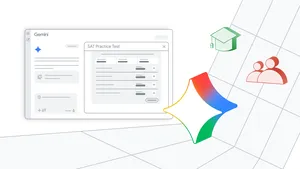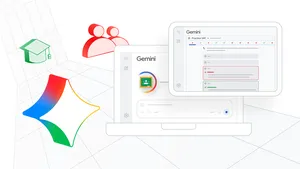Enrollments Explode! But diverse students are leaving...
![[edu] vint/maggie](https://storage.googleapis.com/gweb-uniblog-publish-prod/images/vintmaggie.width-100.format-webp.webp)
Editor's note: This piece by Vint and Maggie was recently published on Communications of the ACM, and we wanted to share it here as well.
I want to return to a theme I have explored before: diversity in our discipline. To do this, I have enlisted the help of my colleague at Google, Maggie Johnson. We are both concerned the computer science community is still not benefiting from the diversity it could and should have. College students are more interested than ever in studying computer science (CS). There has been an unprecedented increase in enrollment in CS undergraduate programs over the past four years. Harvard University's introductory CS course—CS50—has recently claimed the spot as the most enrolled course on campus. An astounding 50% of Harvey Mudd's graduates received engineering degrees this year. The Taulbee Study is an annual survey of U.S. Ph.D.-granting institutions conducted by the Computing Research Association. Table 1 from the 2014 Taulbee report shows the increases CS departments are experiencing.
While the overall number of students in CS courses continues to increase, the number of women and underrepresented minority students who go on to complete undergraduate degrees is, on average, not growing at all. As noted in Table 2, recent findings show that while these students may begin a CS degree program, retaining them after their first year remains a serious issue.
Why is this important? The high-tech industry is putting enormous effort into diversifying its work force. First, there is a social justice aspect given the industry demand and the high salaries associated with that demand. Second, high-tech companies recognize if they are going to create truly accessible and broadly useful products and services, a diverse workforce will best create them. Third, with the advent of an increasing amount of software in virtually every appliance ranging from cars to clocks to say nothing of smartphones, we are going to need every bit of system design and programming talent we can find to avoid collapse into a morass of incompatible, uncooperative, and generally recalcitrant devices in our homes, offices, cars, and on or in our persons. Whether we like it or not, programmable devices are much more malleable than electromechanical ones, potentially less expensive to make, and, possibly, easier to update. The Internet of Things is upon us and we need all hands on deck to assure utility, reliability, safety, security, and privacy in an increasingly online world.
What can faculty do in their own departments? There are several simple interventions that can increase student retention in CS programs. Here are some examples:
While the overall number of students in CS courses continues to increase, the number of women and underrepresented minority students who go on to complete undergraduate degrees is, on average, not growing at all. As noted in Table 2, recent findings show that while these students may begin a CS degree program, retaining them after their first year remains a serious issue.
Why is this important? The high-tech industry is putting enormous effort into diversifying its work force. First, there is a social justice aspect given the industry demand and the high salaries associated with that demand. Second, high-tech companies recognize if they are going to create truly accessible and broadly useful products and services, a diverse workforce will best create them. Third, with the advent of an increasing amount of software in virtually every appliance ranging from cars to clocks to say nothing of smartphones, we are going to need every bit of system design and programming talent we can find to avoid collapse into a morass of incompatible, uncooperative, and generally recalcitrant devices in our homes, offices, cars, and on or in our persons. Whether we like it or not, programmable devices are much more malleable than electromechanical ones, potentially less expensive to make, and, possibly, easier to update. The Internet of Things is upon us and we need all hands on deck to assure utility, reliability, safety, security, and privacy in an increasingly online world.
What can faculty do in their own departments? There are several simple interventions that can increase student retention in CS programs. Here are some examples:
- Consider student interests when planning assignments.
- Provide early and consistent feedback on assignments.
- If you have teaching assistants, ensure they are aware of the best practices you follow.
- Emphasize that intellectual capacity—like a muscle—increases with effort. (You are not born with the ability to program!)
- Tell students about conferences and the benefits of attending conferences for targeted support groups.
- Women and minority students often believe they are not performing well, even when their grades tell a different story. It is important to tell women and minority students they will succeed if they stay.
- Be open and accessible to students. You may not know who needs a sounding board, but generally letting students know you are available can make it easier for them to ask for help or guidance.
- Consider helping to form student chapters of ACM-W and IEEE.
- A list of constructive steps, created by NCWIT, is here.








